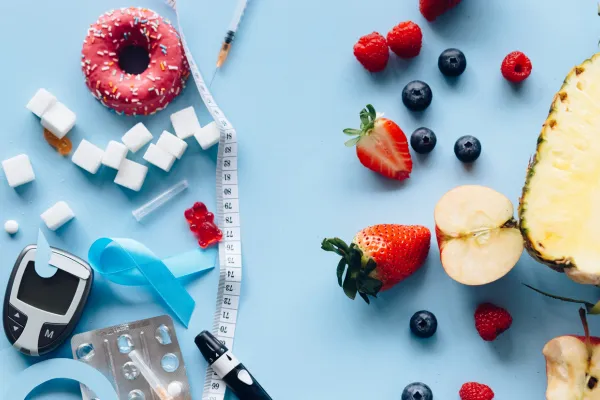
Understanding Food Intake and Diabetes: A Straightforward Explanation
Understanding Food Intake and Diabetes: A Straightforward Explanation
Let’s clear up some common misconceptions about diabetes, especially when it comes to carbohydrates. Many people think, “Carbs and sugar are the enemy!” But the truth is far more nuanced. Carbohydrates aren’t the problem in and of themselves; they’re just macronutrients, and your body knows how to use them when it’s functioning properly. The issue with diabetes lies in how your body handles those carbs.
The Role of Insulin
Insulin is like a key that unlocks your cells so they can absorb glucose (sugar) from your bloodstream for energy. In people with insulin resistance (a hallmark of type 2 diabetes), this key doesn’t work as well. The result? Glucose builds up in the blood because it can’t get into the cells efficiently.
When this happens, your pancreas works overtime to pump out more insulin, trying to compensate. Over time, this can exhaust your pancreas and worsen blood sugar control.
Why Carbs Seem Like the “Bad Guy”
Carbs are broken down into glucose, which enters your bloodstream. If you’re insulin resistant, eating a high-carb meal can spike your blood sugar, leading to that rollercoaster effect—highs, lows, and energy crashes. This leads people to demonize carbs. But carbs didn’t cause the problem; insulin resistance did.
It’s also important to remember that the type of carb matters. Fiber-rich, whole-food carbs like fruits, vegetables, and whole grains cause a slower rise in blood sugar compared to refined carbs like white bread or sugary snacks.
What Actually Causes Insulin Resistance?
Insulin resistance is driven by a combination of factors, including:
Excess energy intake: Eating more calories than your body burns can lead to weight gain, particularly around the abdomen, which is strongly linked to insulin resistance.
Low activity levels: Regular exercise improves how your muscles respond to insulin.
Poor dietary patterns: Chronically eating ultra-processed foods, which are high in refined carbs, fats, and low in nutrients, can exacerbate the issue.
The Bottom Line on Carbs and Diabetes
Carbs aren’t the villain in diabetes. Sure, if you’re already insulin resistant, managing your carbohydrate intake—especially refined carbs—can help stabilize blood sugar levels. But the real fix comes from addressing the root causes of insulin resistance: improving your overall diet, increasing physical activity, and maintaining a healthy weight.
If carbs were the problem, you’d see whole societies with high-carb diets (like traditional Japanese or Mediterranean populations) riddled with diabetes. But they aren’t—because their diets are nutrient-dense, their activity levels are high, and their total energy intake is balanced.
So, don’t fear carbs. Instead, focus on the bigger picture: eating a well-rounded, nutrient-dense diet, staying active, and managing your overall energy balance. That’s how you really take control of diabetes—not by vilifying one macronutrient.



